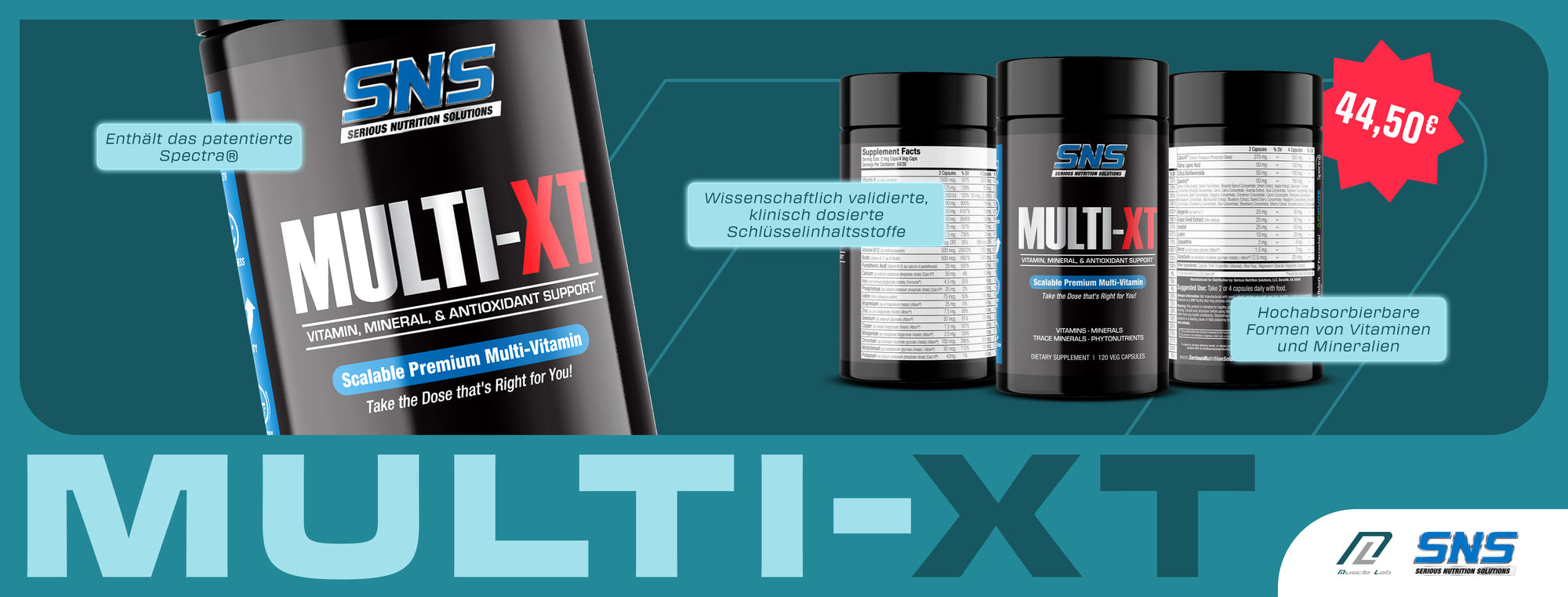Vegan Protein – plant-based proteins and protein powder for vegans
What is a vegan protein?
Vegan protein refers to protein powder that completely avoids animal products (dairy products such as casein, whey, and eggs) and relies entirely on vegan or plant-based protein sources. It also generally contains no allergens, artificial additives, or preservatives. Instead, it uses stevia, for example, to provide a sweeter, plant-based flavor.
What is the difference between vegan and animal protein?
As already described, the main difference lies in the use of protein sources. Vegan protein powders are usually a mixed protein or multi-component protein. It's rare to find a vegan protein powder with only one protein source, as the biological value of plant-based protein sources is generally lower than that of animal-based protein sources.
How do you recognize a high-quality, vegan protein powder?
Whether a vegan protein is high-quality and healthy for the body depends on various factors. First of all, there should generally be no allergies or intolerances, but this shouldn't be a major problem with a vegan protein powder.
A key quality feature is the combination of various vegan protein sources to provide the most complete protein possible, as the biological value of vegan protein sources is relatively low. A brief list of vegan protein sources based on their biological value can be found here:
- Soy flour - (81-84)
- Green algae - (81)
- Rye - (76-78)
- Beans - (72-73)
- Potatoes - (70-96)
- Rice - (66-83)
- Lentils - (60)
- Wheat - (56-59)
- Peas - (56)
- Corn - (54-74)
- Vegan protein combined: Beans (52%) + Corn (48%) = 99-101
Is losing weight better with vegan protein powder?
Losing weight is always a question of your overall metabolism—for example, how many calories you burn per day versus how many calories you consume over the course of a day. If your calorie balance is negative, meaning you consume fewer calories than you burn, you'll lose weight.
Vegan protein powders can help you lose weight because they are filling, often very low in calories, and provide the body with amino acids that contribute to muscle building, thus also increasing your passive calorie consumption.
Some vegan protein shakes also contain amino acids such as L-carnitine or CLA, which further stimulate fat burning.
What benefits do plant-based or vegan proteins offer you?
Plant-based protein powder is becoming increasingly popular because it offers vegans the opportunity to meet their protein needs for athletic purposes. Animal protein powders such as whey and casein are often not an option for people with lactose intolerance or a vegan diet for various reasons. In our vegan protein powder category, we offer you the best products made from rice protein, soy protein, pea protein, and many other vegan protein sources. The benefits of vegan supplementation are...
- Contains no lactose (suitable for lactose intolerance)
- No animal products (gelatin, dairy products, etc.)
- Better tolerance for lactose intolerance compared to conventional whey
What are the disadvantages of vegan proteins?
The biggest disadvantage of vegan protein is usually the incomplete amino acid balance. Lysine, in particular, is an amino acid that is only present in very small amounts in vegan proteins. This fact reduces the biological value of vegan proteins, so it makes the most sense to combine different protein sources or consume "more" protein powder to maximize muscle protein synthesis.

